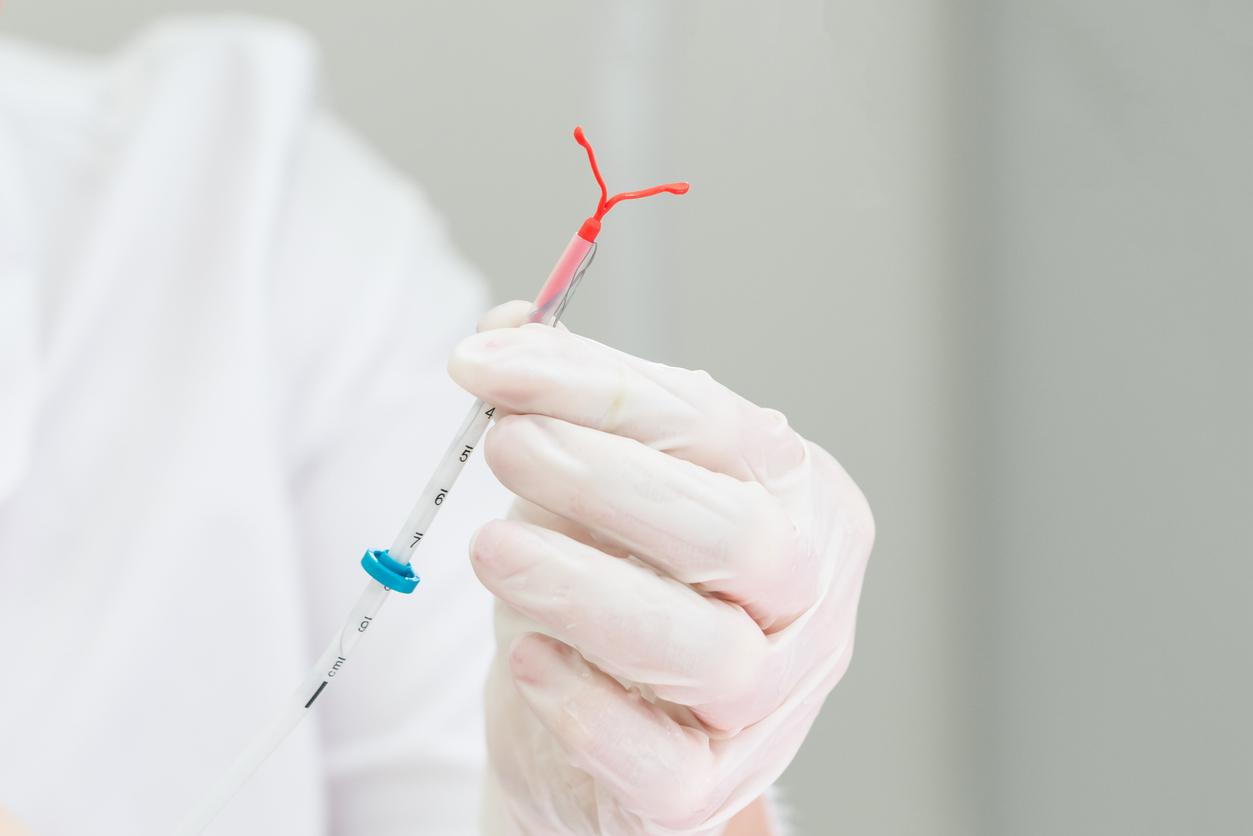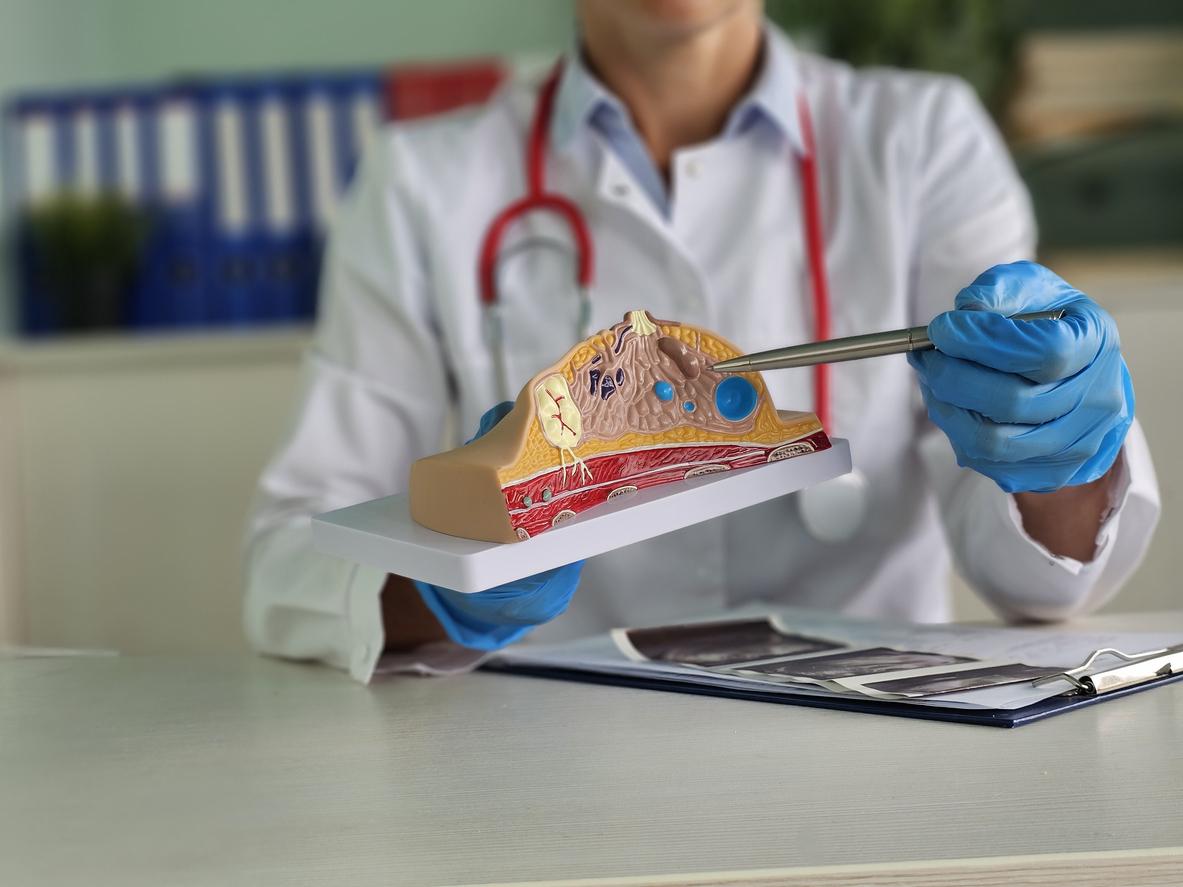The doctor who launched the alert on the scandal of PIP breast prostheses, Christian Marinetti, accuses the Biocell model, from the American Allergan, of also being the cause of a rare and very aggressive cancer: anaplastic lymphoma large cell. Risks which are not new and which could be associated with the silicone contained in these prostheses and which leaks through their wall.

After bringing out the PIP scandal, Dr Christian Marinetti underlines the risks, very different from those mentioned at the time of this fraud, of the occurrence of a rare cancer which would be more frequent with a model of breast prostheses from the Allergan brand. On France Info, this Marseille plastic and aesthetic surgeon accuses the “Biocell” textured breast prosthesis model of causing more anaplastic large cell lymphomas.
Anaplastic large cell lymphoma (ALCL) is a peripheral T cell non-Hodgkin lymphoma. It is a rare, but aggressive cancer affecting lymph nodes and organs. This increased risk associated with breast implants has been known for many years and has been the subject of in-depth studies by various health agencies around the world.
50 cases and 5 deaths in France over almost 8 years
Fifty cases of anaplastic large cell lymphoma associated with breast implants (LAGC-AIM) were reported to the ANSM between 2011 and July 2018. Of these 50 patients, five died, including three related to progression of LAGC. For the other two patients, the imputability remains uncertain. The mean age of the patients at the time of diagnosis was 58.4 years and the mean duration of implantation before the diagnosis of LAGC is 7 years. In these conditions of scarcity, it is difficult to point the finger at a particular prosthesis.
The suspicions about Allergan brand products are not new, however. It was in March 2015 that the National Cancer Institute (INCa) and the ANSM identified a risk. In July 2016, 29 cases of lymphoma associated with breast implants had already been reported in France. Over the past 15 years, there has been discussion and scientific work on lymphoma cases in women who have received breast implants. The Medicines and Health Products Regulatory Agency in the United Kingdom, the National Agency for the Safety of Medicines and Health Products in France, the Food and Drug Administration (or FDA) in the United States and Australia Therapeutic Goods Administration (TGA) have continually evaluated these reported cases and estimate them to be very rare among the 5-10 million women worldwide who have received breast implants.
Based on all available scientific information, these agencies recommend that women with breast implants perform a breast self-exam regularly and see their surgeon if they notice any changes.
Role of silicone leaks from the prosthesis
Breast prostheses contain either water (a saline solution) or silicones. However, over time, they tend to let out a little of their contents, even for the best prostheses. It is the slight diffusion of silicone, outside the prosthesis, which is likely to cause immunological disorders and lymphomas. Moreover, this is what seems to show a very recent study published in Annals of Surgery which indicates that women with silicone breast implants have a higher risk of developing autoimmune diseases and skin cancer than those who do not have them or have prostheses filled with saline solution.
In this very large register, the researchers analyzed the medical data of nearly 100,000 women. Over 80,000 have received silicone implants; the rest had implants filled with sterile saline. Women who have received silicone implants have a higher risk of developing autoimmune diseases: Gougerot-Sjögren syndrome (risk multiplied by 8), scleroderma (risk multiplied by 7) and rheumatoid arthritis (risk multiplied by by 6). The risk of melanoma, a serious type of skin cancer, is also almost four times higher, as is the risk of stillbirth (4.5 times higher).
It should be noted that these autoimmune diseases are themselves classically associated with an increased risk of lymphoma since they are linked to a disorder of the immune system, and that the silicon which is contained in the silicone of the prostheses has been associated in the past with trigger of these autoimmune disorders.
Local complications
Compared to saline-filled implants, silicone implants are also linked to a higher risk of local complications. These include capsular retraction (scar around the implant), which occurs with 5% of silicone implants, compared to 2.8% with implants filled with saline. Capsular retraction occurred in 7.2% of primary breast augmentation cases and was the most common reason for reoperation in this group.
This risk is of course not specifically associated with Allergan prostheses.
Choose the type of prosthesis and monitor them
Christian Marinetti, however, points to an Allergan prosthesis: “The one that gives the most lymphoma problems is Allergan’s Biocelle”. Its granular appearance, designed to adhere better to the breast, would be the cause of lymphomas, according to him, ignoring the probable role of the silicone which passes through the envelope. “It has allowed lots of women who have had breast cancer, who have had breast amputations, to regain a normal physical appearance”, however nuances the whistleblower, who does not plan to outlaw these breast implants . It will be up to surgeons “to assess in the field what are the advantages or disadvantages of using a particular type of implant in the interest of the patient”, he specifies.
“Let us watch, even more closely than the others, the patients with Biocell. As with a drug, the prostheses have side effects. This one is serious, but rare. The risk is low, but now that we know it, we are obliged to take this into account “, believes Christian Marinetti. A discussion which may include the choice of the content of the prosthesis: silicone or saline solution.


.

















